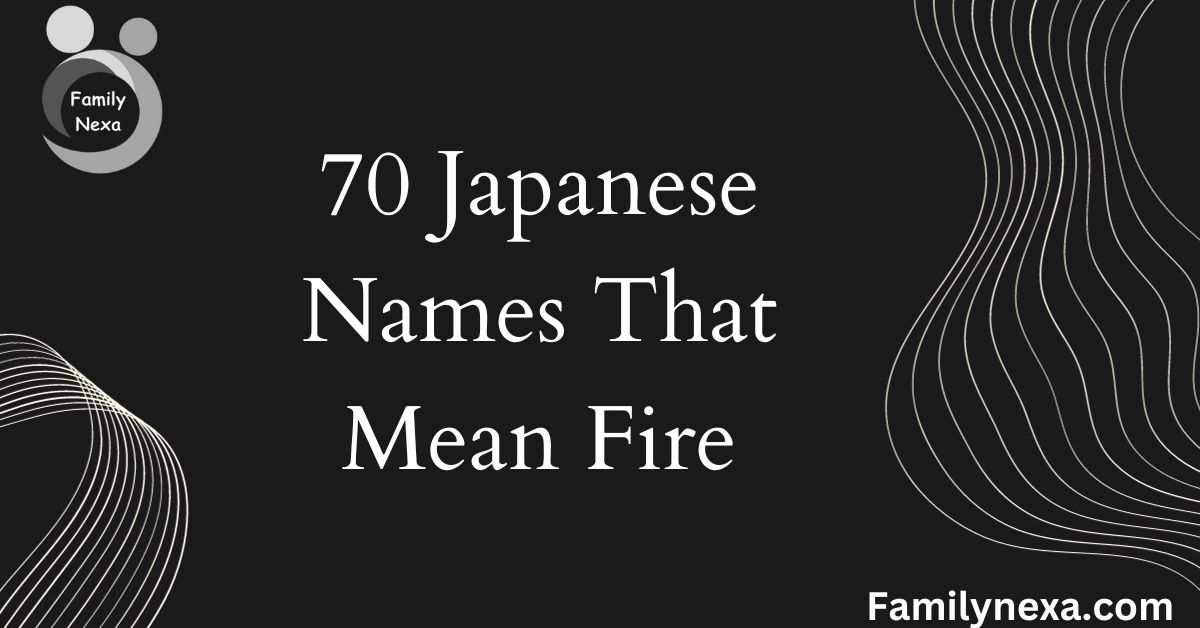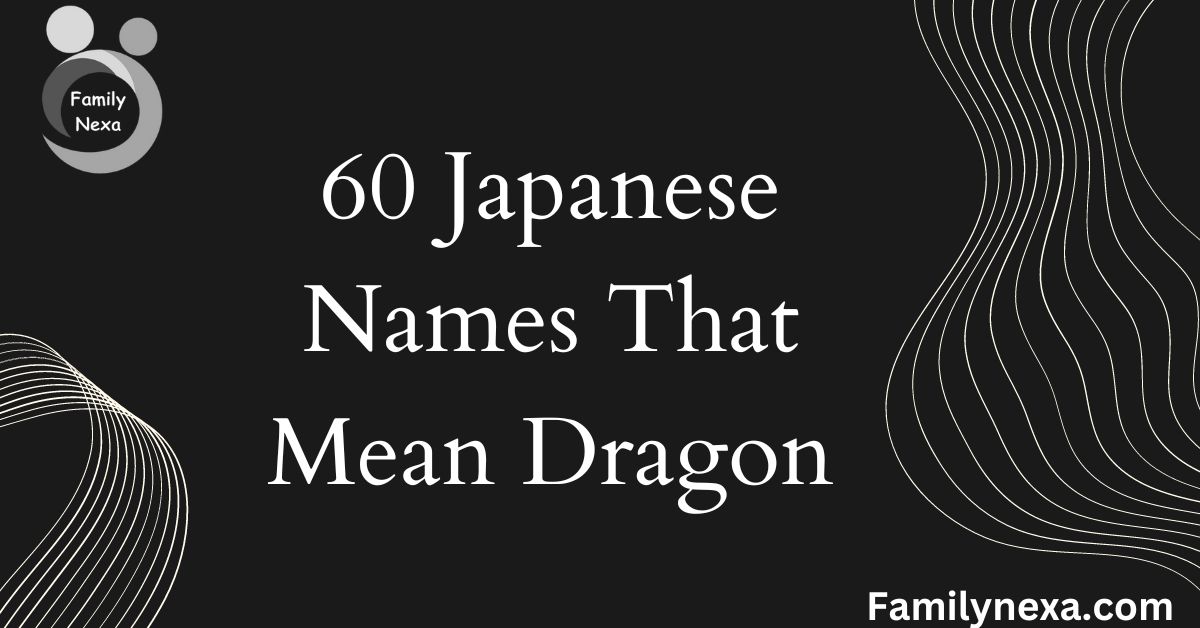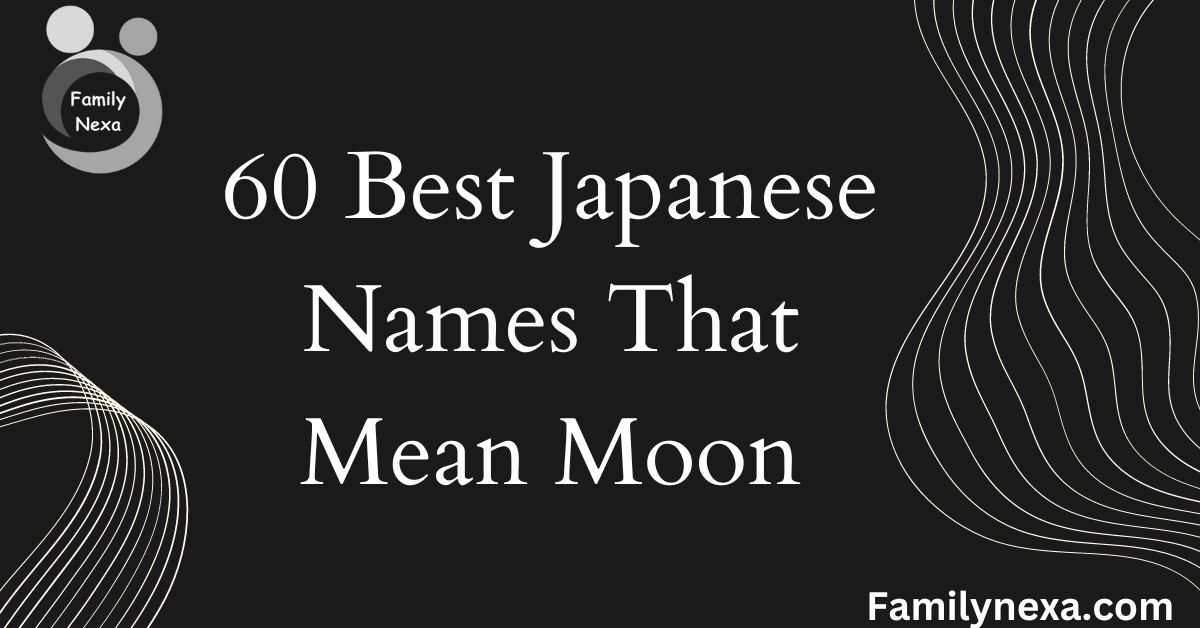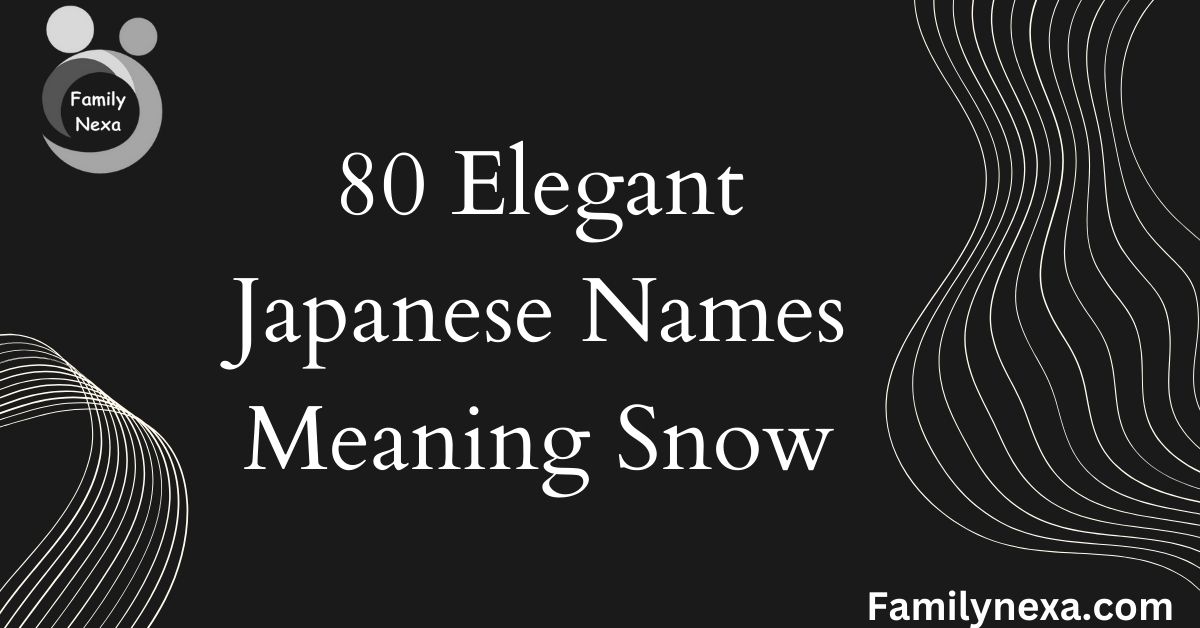Names relating to fire and flame hold deep symbolism in Japanese culture. In mythology and folklore, fire represents vitality and purification. When selecting a Japanese baby name, parents may look for one associated with these powerful elements.
Names like Akari, Kasai, and Kaen all have meanings tied to fire, burning brightly, hearth, or flames. Other picks like Hinata, Atsushi, and Kaji subtly reference fire through kanji characters or wordplay. Whether you seek a bold literal fire name or a more subtle connection, beautiful options exist.
Japanese names with fire meanings express warmth and strength. For parents seeking meaningful names, those relating to fire capture the vibrant energy of this essential force of nature. This makes fire-themed names intriguing choices for baby girls and boys.
Fiery Japanese Names: Significance and Symbolism
In Japanese culture, fire holds deep meaning. It represents energy, passion, purification, and rebirth. This explains why many Japanese names relate to fire, flames, or heat. For instance, the female name Kasai directly translates to “fire” while the male name Hinata means “sunny place”.
The kanji characters used in names like Atsuko (“warm child”) and Kaji (“fire”) also connect to fire motifs. Beyond literal fire names, Japanese wordplay ties other monikers to burning or light. The vibrant, luminous imagery in these names reflects valued cultural concepts. Fiery Japanese names express liveliness, warmth, skill, and intelligence.
For parents seeking meaningful names, those tied to fire capture symbolic qualities like dynamism, resilience, and illumination. Names with fire associations are beautiful, powerful options for Japanese girls and boys.
25 Fire-Inspired Japanese Girl Names
1. Hinata
- Kanji: (ひなた)
- Pronunciation: hee-nah-tah
- Meaning: “sunny place”
- Hinata evokes the warmth and brightness of sunlight, symbolizing positivity, joy, and the transformative power of fire that brings light to darkness.
2. Enya
- Kanji: (えんや)
- Pronunciation: en-yah
- Meaning: “blaze”
- Enya captures the intensity of a blaze, signifying passion, strength, and the transformative nature of fire that consumes and renews.
3. Akari
- Kanji: (あかり)
- Pronunciation: ah-kah-ree
- Meaning: “light” or “brightness”
- Akari represents the gentle glow of a flame, symbolizing illumination, warmth, and the comforting aspect of fire in guiding one through darkness.
4. Rika
- Kanji: (りか)
- Pronunciation: ree-kah
- Meaning: “true fragrance of a flower”
- Rika signifies the essence of a flame’s fragrance, blending the beauty of fire with the delicate and captivating aroma of flowers.
5. Hikari
- Kanji: (ひかり)
- Pronunciation: hee-kah-ree
- Meaning: “light” or “radiance”
- Hikari conveys the brilliance of fire, representing the radiant energy that brightens the world, much like a glowing flame.
6. Natsuko
- Kanji: (なつこ)
- Pronunciation: naht-soo-koh
- Meaning: “summer child”
- Natsuko combines the warmth of summer with the transformative energy of fire, suggesting a person who radiates positive and vibrant energy.
7. Homura
- Kanji: (ほむら)
- Pronunciation: hoh-moo-rah
- Meaning: “flame” or “blaze”
- Homura embodies the raw power and intensity of fire, symbolizing passion, determination, and the ability to overcome challenges.
8. Ayaka
- Kanji: (あやか)
- Pronunciation: ah-yah-kah
- Meaning: “color” or “light”
- Ayaka combines the concepts of color and light, reflecting the vivid and dynamic nature of fire’s visual spectacle.
9. Kasai
- Kanji: (かさい)
- Pronunciation: kah-sah-ee
- Meaning: “conflagration” or “inferno”
- Kasai conveys the fierce and uncontrollable nature of fire, symbolizing strength, resilience, and the ability to blaze through obstacles.
10. Kiyomi
- Kanji: (きよみ)
- Pronunciation: kee-yoh-mee
- Meaning: “pure beauty”
- Kiyomi captures the essence of beauty akin to the dancing flames, suggesting purity, grace, and the captivating allure of fire.
11. Rin
- Kanji: (りん)
- Pronunciation: reen
- Meaning: “phosphorescent light” or “dignified”
- Rin embodies both the ethereal glow of fire and a dignified presence, symbolizing a person with a radiant and composed nature.
12. Megumi
- Kanji: (めぐみ)
- Pronunciation: meh-goo-mee
- Meaning: “blessing” or “grace”
- Megumi signifies the positive influence and grace that fire brings, representing a person who blesses others with warmth, comfort, and inspiration.
13. Aika
- Kanji: (あいか)
- Pronunciation: eye-kah
- Meaning: “love song of the sea” or “fire flower”
- Aika combines the imagery of the sea and fire, suggesting a person whose presence is a harmonious blend of passion and tranquility.
14. Yūhi
- Kanji: (ゆうひ)
- Pronunciation: yoo-hee
- Meaning: “evening sun” or “sunset”
- Yūhi captures the serene and fiery hues of a sunset, symbolizing the peaceful yet vibrant energy associated with the sun’s descent.
15. Maki
- Kanji: (まき)
- Pronunciation: mah-kee
- Meaning: “firewood” or “kindling”
- Maki represents the foundational elements of fire, symbolizing the potential for growth, warmth, and the ignition of passion.
16. Ryōka
- Kanji: (りょうか)
- Pronunciation: ryo-kah
- Meaning: “refreshing fragrance of the cherry blossom” or “fire”
- Ryōka beautifully intertwines the delicate scent of cherry blossoms with the fierce energy of fire, creating a name that signifies both beauty and strength.
17. Honoka
- Kanji: (ほのか)
- Pronunciation: hoh-noh-kah
- Meaning: “subtle fragrance” or “warmth”
- Honoka captures the gentle essence reminiscent of a subtle fragrance, symbolizing the comforting warmth associated with fire.
18. Haruka
- Kanji: (はるか)
- Pronunciation: hah-roo-kah
- Meaning: “distant” or “far-off”
- Haruka suggests a person with a dreamy and aspirational nature, akin to the distant yet enchanting glow of fire.
19. Nanami
- Kanji: (ななみ)
- Pronunciation: nah-nah-mee
- Meaning: “seven seas” or “fire wave”
- Nanami combines the vastness of the seven seas with the dynamic energy of a fire wave, symbolizing boundless strength and fluidity.
20. Kasumi
- Kanji: (かすみ)
- Pronunciation: kah-soo-mee
- Meaning: “mist” or “haze”
- Kasumi conjures the imagery of a gentle mist, symbolizing the elusive and ethereal qualities associated with fire’s transformative nature.
21. Sakuya
- Kanji: (さくや)
- Pronunciation: sah-koo-yah
- Meaning: “blossom” or “fire”
- Sakuya merges the beauty of blossoms with the intensity of fire, signifying a person who radiates warmth and elegance.
22. Yūka
- Kanji: (ゆうか)
- Pronunciation: yoo-kah
- Meaning: “gentle flower” or “melody of the evening”
- Yūka combines the delicate nature of flowers with the soothing melody of the evening, reflecting a person with a serene and calming presence.
23. Hinoko
- Kanji: (ひのこ)
- Pronunciation: hee-noh-koh
- Meaning: “sparks” or “ember”
- Hinoko represents the tiny, glowing sparks or embers, symbolizing the potential for growth and the beginning of a fiery journey.
24. Sora
- Kanji: (そら)
- Pronunciation: soh-rah
- Meaning: “sky” or “heaven”
- Sora embodies the vast expanse of the sky, suggesting a person with limitless potential and a spirit that soars like flames reaching towards the heavens.
25. Natsuki
- Kanji: (なつき)
- Pronunciation: naht-skee
- Meaning: “summer moon” or “fire spirit”
- Natsuki combines the beauty of a summer moon with the spirit of fire, symbolizing a person with a radiant and lively presence that lights up the night.
25 Fire-Themed Japanese Boy Names
1. Enji
- Kanji: (えんじ)
- Pronunciation: en-jee
- Meaning: “flame” or “blaze”
- Enji embodies the raw intensity of fire, symbolizing passion, strength, and the transformative power of a blazing spirit that overcomes challenges.
2. Kaen
- Kanji: (かえん)
- Pronunciation: kah-en
- Meaning: “flame” or “inferno”
- Kaen signifies the destructive and regenerative aspects of fire, representing resilience and the ability to rise from the ashes.
3. Ryū
- Kanji: (りゅう)
- Pronunciation: ryoo
- Meaning: “dragon” or “flame”
- Ryū merges the imagery of a dragon with the essence of fire, symbolizing power, vitality, and the untamed energy inherent in flames.
4. Hiroyuki
- Kanji: (ひろゆき)
- Pronunciation: hee-roh-yoo-kee
- Meaning: “abundant joy” or “large flame”
- Hiroyuki combines the joy of abundance with the symbolism of a large flame, suggesting a person whose presence brings warmth, happiness, and vitality.
5. Akifumi
- Kanji: (あきふみ)
- Pronunciation: ah-kee-foo-mee
- Meaning: “bright flame” or “autumn fire”
- Akifumi represents the brilliance of a flame, akin to the vivid colors of autumn, symbolizing a person with a vibrant and illuminating character.
6. Kasai
- Kanji: (かさい)
- Pronunciation: kah-sah-ee
- Meaning: “conflagration” or “fire disaster”
- Kasai conveys the fierce and uncontrollable nature of fire, signifying strength, resilience, and the ability to blaze through obstacles.
7. Hinata
- Kanji: (ひなた)
- Pronunciation: hee-nah-tah
- Meaning: “sunny place” or “fire”
- Hinata evokes the warmth and brightness of sunlight, symbolizing positivity, joy, and the transformative power of fire that brings light to darkness.
8. Takuma
- Kanji: (たくま)
- Pronunciation: tah-koo-mah
- Meaning: “strong” or “mighty flame”
- Takuma signifies strength and might, drawing parallels between inner fortitude and the vigorous energy associated with fire.
9. Hikaru
- Kanji: (ひかる)
- Pronunciation: hee-kah-roo
- Meaning: “radiance” or “light”
- Hikaru represents the radiant energy of fire, symbolizing illumination, positivity, and the dynamic presence that lights up the surroundings.
10. Kiyoshi
- Kanji: (きよし)
- Pronunciation: kee-yoh-shee
- Meaning: “pure” or “clear flame”
- Kiyoshi embodies purity and clarity, suggesting a person with an unwavering and transparent character akin to the clarity found in flames.
11. Jinsei
- Kanji: (じんせい)
- Pronunciation: jeen-seh
- Meaning: “life” or “vitality”
- Jinsei emphasizes the vitality and life force associated with fire, symbolizing energy, passion, and the essence that sustains existence.
12. Rekka
- Kanji: (れっか)
- Pronunciation: rehk-kah
- Meaning: “wildfire” or “blazing fire”
- Rekka signifies the untamed and fierce nature of wildfire, representing a person with unbridled passion and intensity.
13. Tatsuo
- Kanji: (たつお)
- Pronunciation: taht-soh-oh
- Meaning: “dragon man” or “man of fire”
- Tatsuo combines the imagery of a dragon with the essence of fire, symbolizing strength, power, and the transformative energy within.
14. Akihiro
- Kanji: (あきひろ)
- Pronunciation: ah-kee-hee-roh
- Meaning: “bright autumn” or “light of fire”
- Akihiro combines the brightness of autumn with the symbolism of fire, suggesting a person whose presence brings warmth and illumination.
15. Kazuki
- Kanji: (かずき)
- Pronunciation: kah-zoo-kee
- Meaning: “harmonious hope” or “fire of peace”
- Kazuki represents the harmonious blend of hope with the tranquility of fire, symbolizing a person with a peaceful and optimistic nature.
16. Yūsaku
- Kanji: (ゆうさく)
- Pronunciation: yoo-sah-koo
- Meaning: “vibrant” or “lively flame”
- Yūsaku signifies vibrancy and liveliness, mirroring the dynamic and animated energy associated with a lively flame.
17. Akitoshi
- Kanji: (あきとし)
- Pronunciation: ah-kee-toh-shee
- Meaning: “bright future” or “light of fire”
- Akitoshi combines the optimism of a bright future with the symbolism of fire, signifying a person whose journey is illuminated with hope and positivity.
18. Kōen
- Kanji: (こうえん)
- Pronunciation: koh-en
- Meaning: “flame of eternity” or “eternal blaze”
- Kōen represents the enduring and eternal nature of fire, symbolizing timeless strength, resilience, and everlasting vitality.
19. Ran
- Kanji: (らん)
- Pronunciation: rahn
- Meaning: “storm” or “wildfire”
- Ran embodies the unpredictable and intense nature of a wildfire, representing a person with a dynamic and forceful personality.
20. Yūhi
- Kanji: (ゆうひ)
- Pronunciation: yoo-hee
- Meaning: “setting sun” or “evening fire”
- Yūhi captures the serene and fiery hues of a setting sun, symbolizing the peaceful yet vibrant energy associated with the descent of the sun.
21. Satoru
- Kanji: (さとる)
- Pronunciation: sah-toh-roo
- Meaning: “enlightened” or “fire of wisdom”
- Satoru signifies enlightenment and wisdom, suggesting a person whose inner fire is fueled by knowledge, understanding, and intellectual depth.
22. Hibiki
- Kanji: (ひびき)
- Pronunciation: hee-bee-kee
- Meaning: “echo” or “resonance”
- Hibiki symbolizes the lingering influence and resonance of fire, representing a person whose impact echoes in the hearts and minds of others.
23. Atsushi
- Kanji: (あつし)
- Pronunciation: ah-tsoo-shee
- Meaning: “industrious flame” or “hardworking fire”
- Atsushi combines the concept of industriousness with the symbolism of fire, signifying a person with a strong work ethic and a burning passion for success.
24. Ryōjin
- Kanji: (りょうじん)
- Pronunciation: ryoh-jeen
- Meaning: “spirit of the dragon” or “fire soul”
- Ryōjin merges the spirit of a dragon with the essence of fire, symbolizing a person with a powerful and fiery soul, marked by strength, courage, and resilience.
25. Hinote
- Kanji: (ひのて)
- Pronunciation: hee-noh-teh
- Meaning: “fire hands” or “hands of flame”
- Hinote signifies the dynamic and powerful nature of fire, suggesting a person whose actions and endeavors are as impactful and transformative as flames.
20 Gender-Neutral Japanese Names Associated with Fire
1. Hikari
- Kanji: (ひかり)
- Pronunciation: hee-kah-ree
- Meaning: “light” or “radiance”
- Hikari embodies the illuminating quality of fire, symbolizing the radiant energy that brightens the world and the positive influence that brings warmth to others.
2. Aki
- Kanji: (あき)
- Pronunciation: ah-kee
- Meaning: “sparkle” or “brightness”
- Aki captures the sparkling and bright essence, evoking the lively energy associated with fire and suggesting a person whose presence is dynamic and spirited.
3. Kōsei
- Kanji: (こうせい)
- Pronunciation: koh-seh
- Meaning: “flame essence” or “fire spirit”
- Kōsei represents the core spirit of fire, symbolizing a person with a passionate and fiery nature that sparks enthusiasm and warmth in others.
4. Subaru
- Kanji: (すばる)
- Pronunciation: soo-bah-roo
- Meaning: “unite” or “bring together”
- Subaru signifies the unity of forces, akin to the gathering and convergence of flames, suggesting a person whose presence fosters collaboration and harmony.
5. Honoo
- Kanji: (ほのお)
- Pronunciation: hoh-noh-oh
- Meaning: “flame” or “blaze”
- Honoo directly translates to flame, embodying the elemental power and transformative nature of fire, symbolizing strength, passion, and renewal.
6. Akira
- Kanji: (あきら)
- Pronunciation: ah-kee-rah
- Meaning: “bright” or “clear”
- Akira captures the brightness associated with fire, signifying clarity and brilliance, suggesting a person whose presence shines with a clear and vivid light.
7. Yūki
- Kanji: (ゆうき)
- Pronunciation: yoo-kee
- Meaning: “courage” or “bravery”
- Yūki represents the inner strength akin to the resilience of fire, symbolizing courage and bravery in facing challenges with a burning spirit.
8. Kasumi
- Kanji: (かすみ)
- Pronunciation: kah-soo-mee
- Meaning: “mist” or “haze”
- Kasumi evokes the ethereal and elusive quality of fire, symbolizing the gentle mist that surrounds flames, suggesting a person with a mysterious and enchanting aura.
9. Sora
- Kanji: (そら)
- Pronunciation: soh-rah
- Meaning: “sky” or “heaven”
- Sora embodies the vast expanse of the sky, symbolizing the boundless potential and limitless spirit associated with the fiery energy of the heavens.
10. Ren
- Kanji: (れん)
- Pronunciation: ren
- Meaning: “lotus” or “love”
- Ren captures the transformative qualities of fire, akin to the lotus rising from the flames, symbolizing love, purity, and the potential for rebirth.
11. Yūka
- Kanji: (ゆうか)
- Pronunciation: yoo-kah
- Meaning: “gentle flower” or “melody of the evening”
- Yūka combines the delicate nature of flowers with the soothing melody of the evening, reflecting a person with a serene and calming presence associated with the warmth of fire.
12. Haru
- Kanji: (はる)
- Pronunciation: hah-roo
- Meaning: “spring” or “firefly”
- Haru signifies the rejuvenating spirit of spring, akin to the renewal and vitality associated with the flame-like glow of fireflies, symbolizing a person with a lively and spirited nature.
13. Asahi
- Kanji: (あさひ)
- Pronunciation: ah-sah-hee
- Meaning: “morning sun”
- Asahi represents the dawn of a new day, akin to the rising sun and the warmth it brings, symbolizing hope, optimism, and the energizing spirit associated with fire.
14. Kai
- Kanji: (かい)
- Pronunciation: kah-ee
- Meaning: “ocean” or “forgiveness”
- Kai symbolizes the vastness of the ocean, reflecting the calm and forgiving nature akin to the soothing influence of fire, suggesting a person with a peaceful and inclusive spirit.
15. Tsubasa
- Kanji: (つばさ)
- Pronunciation: tsoo-bah-sah
- Meaning: “wings” or “flight”
- Tsubasa signifies the freedom and transformative potential of flight, much like the rising flames, symbolizing a person with an adventurous and dynamic spirit.
16. Amane
- Kanji: (あまね)
- Pronunciation: ah-mah-neh
- Meaning: “sound of heaven” or “peaceful flame”
- Amane combines the celestial sound with the tranquility of fire, symbolizing a person with a peaceful and harmonious presence that resonates with others.
17. Tomo
- Kanji: (とも)
- Pronunciation: toh-moh
- Meaning: “friend” or “companionship”
- Tomo represents the warmth and companionship akin to the comforting presence of fire, symbolizing a person who fosters connections and brings people together.
18. Mio
- Kanji: (みお)
- Pronunciation: mee-oh
- Meaning: “beautiful cherry blossom” or “fire”
- Mio intertwines the beauty of cherry blossoms with the energetic essence of fire, creating a name that signifies both grace and strength.
19. Kaze
- Kanji: (かぜ)
- Pronunciation: kah-zeh
- Meaning: “wind” or “fire”
- Kaze embodies the invisible yet powerful force of the wind, symbolizing the intangible and transformative aspects of life and fire.
20. Hayate
- Kanji: (はやて)
- Pronunciation: hah-yah-teh
- Meaning: “swift wind” or “rapid flame”
- Hayate captures the swiftness and rapidity of both wind and flames, symbolizing a person with dynamic energy, speed, and transformative potential.
Famous Japanese People with Fire-Themed Names
Here are 5 short sentences about famous Japanese people with fire-themed names:
1. Honoo Suzuki was a renowned potter known for his lava-like glazes.
2. Kasai Tanaka was a innovative chef who popularized teppanyaki-style cooking.
3. Akari Hayashi was a avant-garde painter inspired by flames and embers.
4. Homura Sato was a pioneering physicist who studied combustion and ignition.
5. Kaji Yamamoto was a legendary samurai warrior said to fight with fiery passion.
Tips for Choosing the Perfect Fire-Inspired Japanese Name
Here are some tips for choosing the perfect fire-inspired Japanese name:
- Look to kanji characters related to fire like “hi” (fire) or “ka” (flame). Popular choices include Hinata, Hikari, Kasai, and Akari.
- Honor the powerful image of fire with names meaning blaze or inferno like Honoo, Enjō, or Homura.
- For a softer tone, opt for fire-associated words like spark, ember, or candle. Examples are Hibana, Akatsuki, or Tomoshibi.
- Use seasonal fire imagery like Autumn or Summer for a name reflecting warmth. Options include Akifuyu, Natsu, or Fuyumi.
- Incorporate mythological fire beings like dragons or phoenixes. Choices include Ryūnosuke, Hōō, or Kouryuu.
- Look to fiery colors like red, orange or gold. Names could be Akakuro, Kou, or Kin.
- Check if the name sounds bold and vibrant like its flaming namesake. Fiery energy makes a great namesake.
The Role of Fire in Japanese Mythology and Folklore
Here is some information on the role of fire in Japanese mythology and folklore:
- The Japanese fire god, Kagu-tsuchi, was born from the fires in the body of the death goddess Izanami after she died giving birth. This makes fire a destructive but sacred force.
- Amaterasu, the sun goddess, is one of the most important Shinto deities. Her light and fire brought warmth and life to the world. Her conflict with the storm god Susanoo explains the cyclical nature of seasons and agriculture.
- Fox spirits or kitsune are often associated with fire in stories. They can produce fire by waving their tails and some have abilities over fire magic called “kitsunebi”.
- Japanese dragons (ryū) are seen as masters of water and rainfall, but some ancient myths describe flaming dragons or dragons who cause volcanic eruptions when angry.
Comparing Fire-Themed Names with Other Elemental Names in Japanese Culture
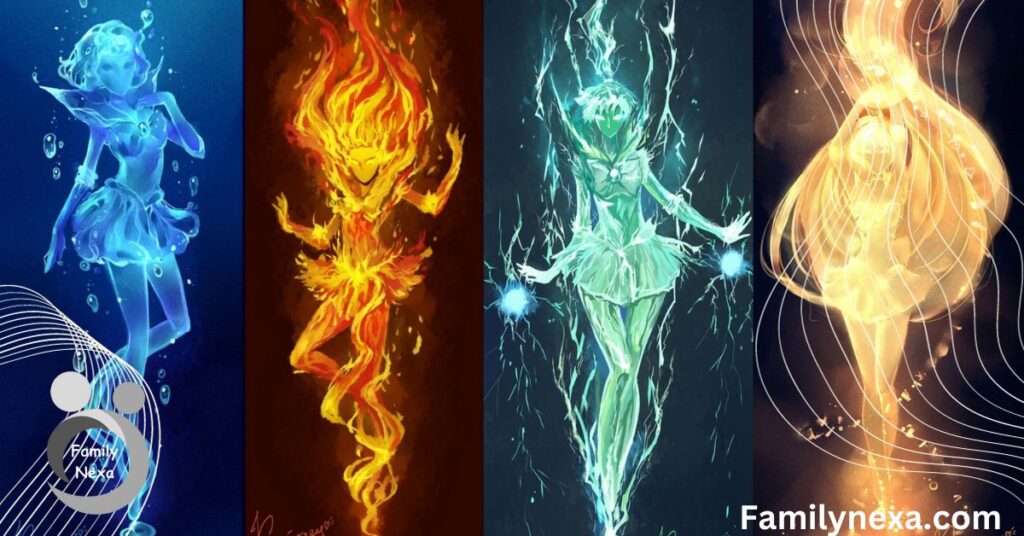
In Japanese culture, names inspired by the elements are very common. Fire is a particularly popular element for names due to its powerful imagery of energy and purification. Names with fire associations like Akari, Homura, and Kasai evoke strength, passion, and dynamism.
Other elemental names convey different traits, such as water-themed names like Mizu or Umi suggesting fluidity and grace, or wind-themed names like Kaze and Kuki evoking freedom. Lightning and ice names like Inazuma and Fubuki are rarer but reflect specific symbolic meanings as well.
While fire-themed names stand out as fierce and bold, names from different elements offer their own unique qualities. Fire remains one of the most widely used and meaningful elemental influences on Japanese names with its primal nature and sacred roots in Japanese mythology.
Frequently Asked Questions
What is the Japanese word for fire?
The Japanese word for fire is “hi” (火).
What is the Japanese word for fiery spirit?
“Honoo” (炎) is a Japanese word meaning flaming or fiery spirit.
What means Mizuki?
Mizuki (みずき) is a Japanese name meaning “beautiful moon”. It contains the kanji for “water” and “moon”.
What does Kenzo mean in Japanese?
Kenzo (健三) is a Japanese boy’s name meaning “strong and healthy third son”. From “ken” – strong/health and “zo” – three.
What is the significance of fire-themed names in Japanese culture?
Fire-themed names hold much symbolic significance in Japanese culture. Fire represents purification, strength, passion, and energy. Names with fire associations are seen as bold and dynamic, associated with vitality and sacred powers from mythology.
Final Thoughts
Fire holds deep meaning in Japanese culture, making it a popular element for names. Blazing, powerful, and sacred, fire-associated names reflect vitality and energy. Looking to the vivid force of flames, options like Akari evoke brightness, while Homura brings to mind fierce passion. Honoring fire’s purifying role elicits names like Kaji or Kasai.
Mythology and folklore also provide fiery inspirations. Dragons and phoenixes as symbols of fire lend might to names like Ryuu and Kouryuu. The primal image of fire seared into Japanese legends continues to shape vibrant naming traditions today.
While water may suggest grace and wind freedom, fire represents the bold and dynamic. Japanese names incorporating the sacred intensity of fire capture blazing styles as unique as their bearers.
Related:
80 Mystic Japanese Names With Dark Meaning(Must-See)
70 Unique Japanese Names That Mean Death

I am Emma, a skilled writer and SEO expert. With years of experience in both fields, I love writing helpful articles readers love. I also want the articles to show up high on Google.
My goal is to make content that is both interesting and easy to find online.
I work hard to research topics, choose the right words, and organize information clearly.
